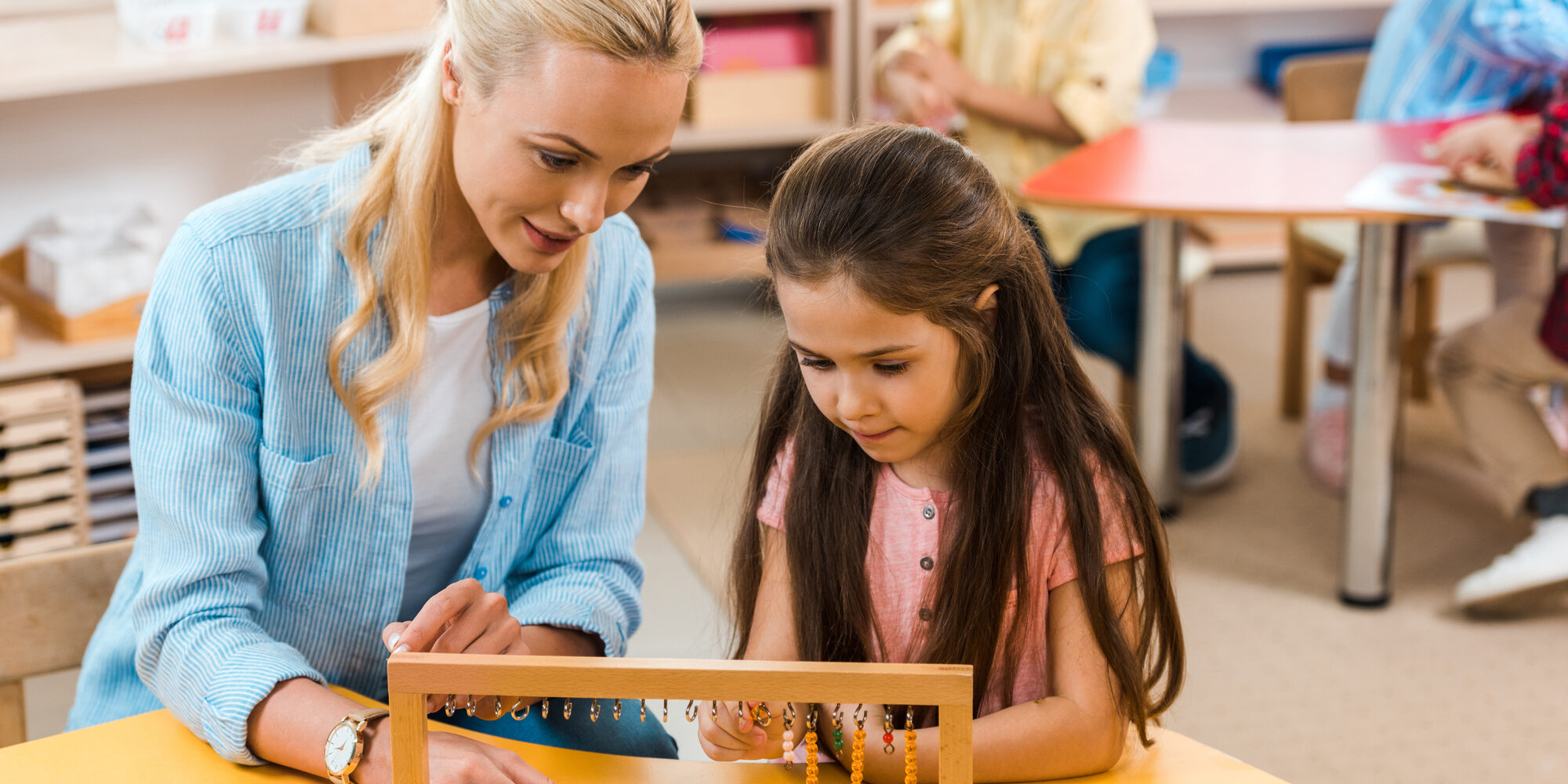With all the magic that happens in a Montessori classroom, you might wonder what kind of person it takes to become a Montessori teacher. Montessori teachers of today are trained to be guides, innovators, and role models for young minds, giving them a special role in your child’s development.
Here are 4 things Montessori teachers do differently than other educators:
1. Encourages Self-Reliance and Self-Worth
One of the greatest differences between a traditional classroom and a Montessori one is the type encouragement that teachers give. In a Montessori environment, the teacher prompts self-reliance in children. Teachers know when it is time to demonstrate a skill when to support a child who needs help, and when to move away from the moment and simply observe. They encourage children to undergo continuous trial and error with all sorts of tasks, such as tying shoes, fastening buttons, unzipping jackets, and more.
Since the child will learn how to do it themselves, they will feel more proud of what they have accomplished and confident in their ability to achieve success in any work they approach. That confidence will carry the child well into adulthood.
2. Careful Observation
Montessori teachers are tasked with preparing the environment for learning, which is one of the key components of a Montessori education. They are charged with giving the classroom the right atmosphere and for providing opportunities for development for all children in the space. Once children have started concentrating on a chosen task, the Montessori teacher takes a step back to see what is happening. They know that the children are motivated by a need to discover new things, so they simply observe what unfolds.
As Dr. Maria Montessori once said, “The teacher’s task is not to talk, but to prepare and arrange a series of motives for cultural activity in a special environment made for the child.” It is through this level of observation that the teacher can further individualize the education for each child, providing work that the child shows interest in.
3. Ready to Discover
For someone to teach the joy of discovery and adventure, they too must love what they do. In a Montessori school, children and teachers are continuously learning from one another. Not only is this in the spirit of role modeling, but it also pays homage to Dr. Maria Montessori, who never stopped learning throughout her lifetime.
Montessori teachers are also encouraged to continue their education and to be curious. That is why the American Montessori Society has made professional development mandatory. Certified Montessori teachers must take between 30-50 hours of continuing education every 3-5 years to continue working in a Montessori school. This ensures all teachers are up to date on the latest curriculum, educational policies, and methods for dealing with child development and so on.
4. Giving Guidance
A Montessori teacher also understands two things. First, they understand that they are not the focus within the classroom. Rather, they guide the students towards the opportunities needed for growth, so that the child maximizes their own learning. As part of the Montessori classroom, teachers must understand that children will be calm and settled when they are doing something that they enjoy.
Second, a Montessori teacher understands that, even when children are concentrating on their work, they still have an active role. Teachers are more like guides, in this case. Whenever children come to a crossroad or have questions, they will look to the guide—the role model—and seek out their support.
Final Thoughts
If you are considering enrolling your child in a Montessori school, this is what you can expect of the teachers. A Montessori teacher is patient, observant, and creative in how they guide a class; and they enjoy the adventure and challenges along the way. Our teachers at Fishtown Montessori in Philadelphia are highly trained individuals who love what they do. So, if you are looking for Montessori schools in Philadelphia, check out our programs. We’re certain your child will love it!
Interested in Montessori philosophy and schooling? Have some questions about enrollment, the schedule, or something else? Give us a call at 215-821-1455 or send us a message. We are more than happy to answer your questions or concerns.






